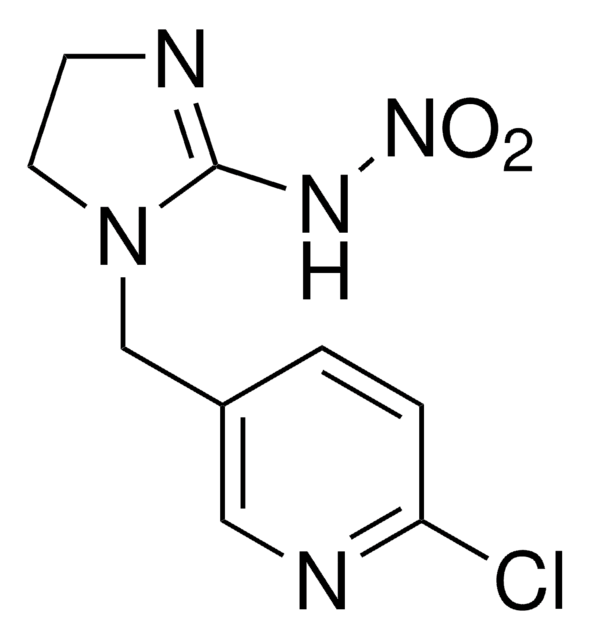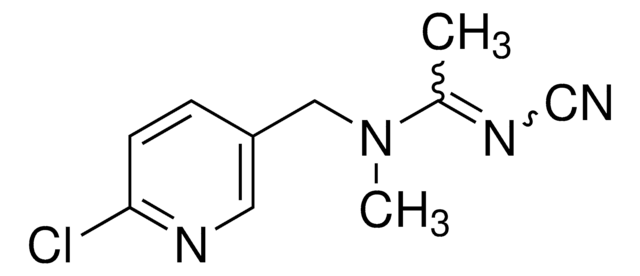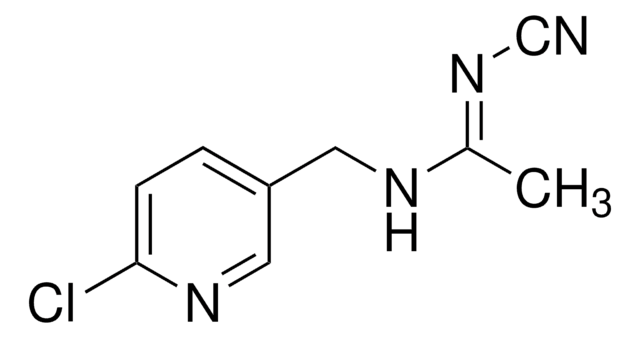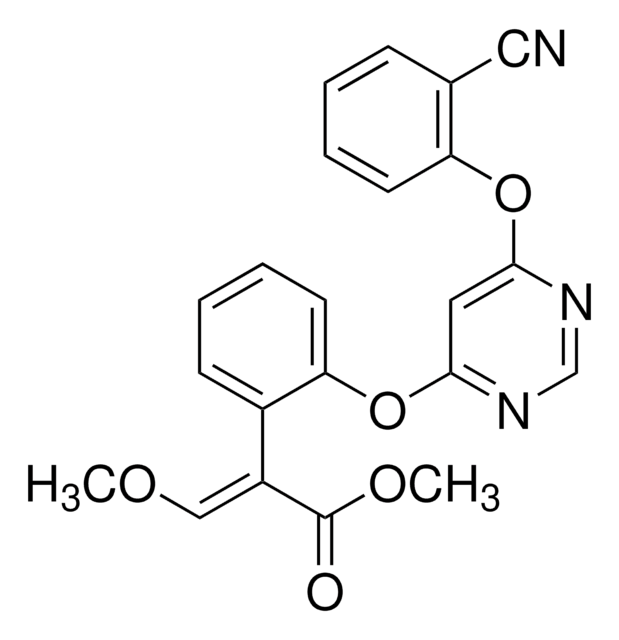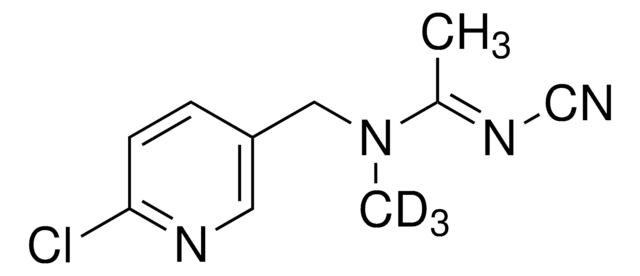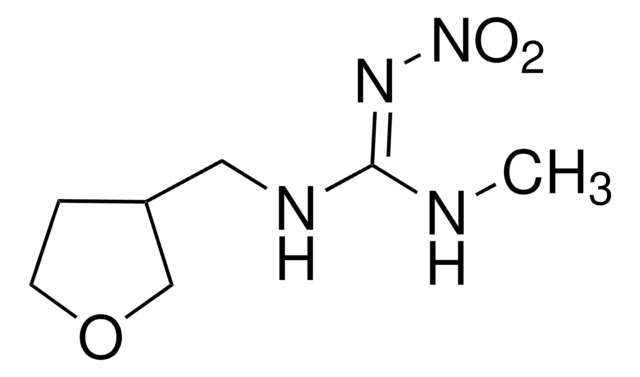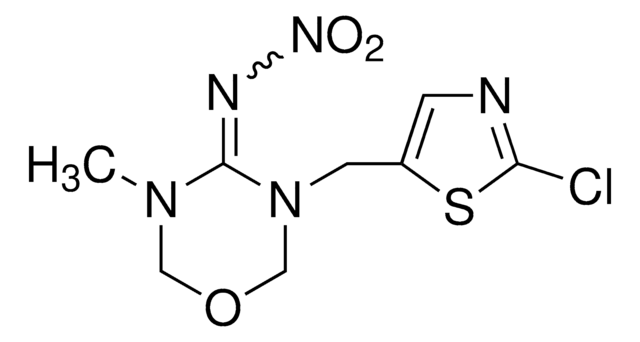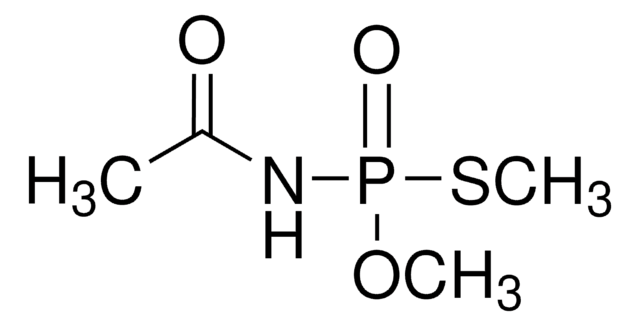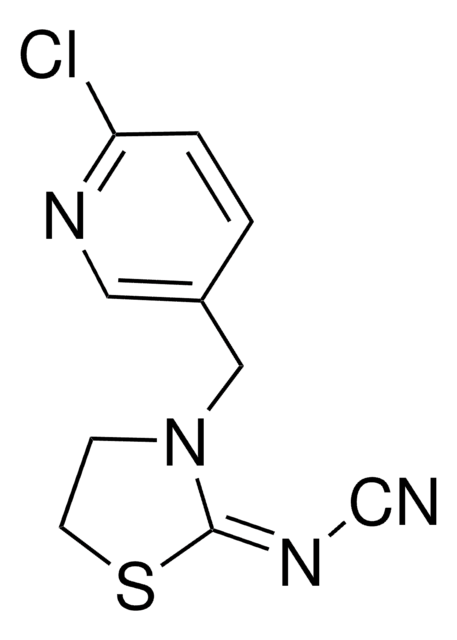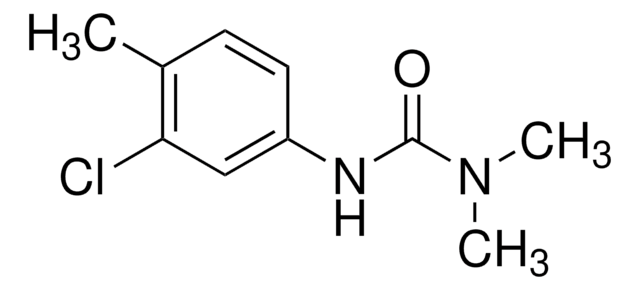33674
N-(6-Chloro-3-pyridylmethyl)-N-cyano-N-methylacetamidine
PESTANAL®, analytical standard
Sinónimos:
Acetamiprid, sum of isomers
About This Item
Productos recomendados
grade
analytical standard
Quality Level
description
mixture of isomers
product line
PESTANAL®
shelf life
limited shelf life, expiry date on the label
technique(s)
HPLC: suitable
gas chromatography (GC): suitable
mp
100-102 °C
application(s)
agriculture
environmental
format
neat
SMILES string
CN(Cc1ccc(Cl)nc1)\C(C)=N\C#N
InChI
1S/C10H11ClN4/c1-8(14-7-12)15(2)6-9-3-4-10(11)13-5-9/h3-5H,6H2,1-2H3/b14-8+
InChI key
WCXDHFDTOYPNIE-RIYZIHGNSA-N
¿Está buscando productos similares? Visita Guía de comparación de productos
General description
Application
Legal Information
signalword
Danger
hcodes
Hazard Classifications
Acute Tox. 3 Oral - Aquatic Acute 1 - Aquatic Chronic 1 - Repr. 2
Storage Class
6.1C - Combustible acute toxic Cat.3 / toxic compounds or compounds which causing chronic effects
wgk_germany
WGK 3
flash_point_f
Not applicable
flash_point_c
Not applicable
ppe
Eyeshields, Faceshields, Gloves, type P2 (EN 143) respirator cartridges
Elija entre una de las versiones más recientes:
¿Ya tiene este producto?
Encuentre la documentación para los productos que ha comprado recientemente en la Biblioteca de documentos.
Los clientes también vieron
Artículos
Determination of Neonicotinoids in Honey using a Chromolith RP-18 HPLC column and UV Detection
Protocolos
Extraction and Analysis of Neonicotinoid Pesticides from Flower Blossoms Using Supel™ QuE and Ascentis® Express
LC/MS/MS Analysis of Neonicotinoid Pesticides in Dandelion Blossoms on Ascentis® Express C18 after Dispersive SPE (QuEChERS) using Supel™ QuE
Learn more about Neonicotinoids - active substances used in plant protection products to control harmful insects.
On Friday, April 27, 2018, the European Union decided to ban the use of three neonicotinoid insecticides from use on field crops, having deemed them dangerous to bees. This application demonstrates the analysis of these banned compounds and others from dandelion blossoms using QuEChERS and LC-MS.
Nuestro equipo de científicos tiene experiencia en todas las áreas de investigación: Ciencias de la vida, Ciencia de los materiales, Síntesis química, Cromatografía, Analítica y muchas otras.
Póngase en contacto con el Servicio técnico